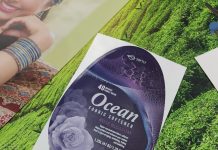In its nearly four-decade journey in India, Tetra Pak, a provider of food processing and packaging solutions, has expanded its offerings with solutions for both brand owners and consumers. Its recent innovations include a high-speed filling machine, plant-based closure solutions, paper-based barrier solutions for beverage cartons, and OneStep technology for the heat-treatment processing of milk.
According to a biennial trend report of the company, Trendipedia 2023, consumers are becoming more value-, health-, and environment-conscious. There’s also a growing demand for personalized experiences, with consumers demanding products tailored to their needs. In such a scenario, the market presence of aseptic liquid packaging cartons has grown significantly in recent years and is expected to continue in the foreseeable future.
The company’s packaging portfolio now covers more than 240 package types with at least 7,000 unique combinations of sizes, shapes, and effects. “At Tetra Pak, we understand the changing consumer demands and continuously work toward developing innovative packaging solutions and processing technologies to meet these evolving preferences,” said Praneeth Tripurari, marketing director of the South Asia region, Tetra Pak.

The E3 Speed Hyper is a filling machine with a capacity to fill 40,000 carton packs per hour—the company claims it is the world’s fastest filling machine in the aseptic carton industry. It features eBeam sterilization, allowing for a 10% reduction in operational costs. The machine uses less power (up to 30% reduction), water (up to 45% reduction), and chemicals (up to 99% reduction).
“In partnership with Lactogal, we have launched an aseptic beverage carton with a paper-based barrier, replacing the traditional aluminum barrier. Made from approximately 80% paperboard, this packaging solution increases renewable content to 90%, reduces its carbon footprint by one-third, and is certified as carbon-neutral by the Carbon Trust. We are tirelessly investing in technology to help our customers reduce operational costs, improve work efficiency, and reduce environmental impact,” Tripurari said.

The latest additions include the Tetra Prisma Aseptic 300 Square, featuring a plant-based cap, made out of sugarcane. It is deployed with the beverage brand Maaza for its foray into the dairy category with the launch of Maaza Magic lassi. The introduction of these caps has helped increase renewable content in packaging by 11% and decreased the CO2 impact by approximately 24% when compared to the fossil-based cap solution, the company says.
According to Tripurari, Tetra Pak has been working on categories such as ice cream with large-size chunks or inclusions, mayonnaise, sweetened condensed milk, and more. In the dairy sector, it can supply everything from a single valve to a complete greenfield factory. On the processing side, the company can provide equipment and solutions for a wide range of products – from whey powder to ice cream.
On the processing side, Tetra Pak introduced the OneStep technology, which combines separation, standardization, blending, heat treatment, etc., into a single step, making it faster and more efficient to produce UHT (ultra-heat treatment, or ultra-high-temperature processing) milk products. Tripurari says, “This technology allows our customers to start with raw milk, milk powder, or a combination of both, offering greater production flexibility while reducing environmental impact by over 40%. With fewer equipment pieces to operate, electricity usage can be cut by up to 29%.”

“As demand in the ice cream sector grows, we introduced the Tetra Pak Extrusion Wheel,” he adds. “It enables brands to produce uniform, premium-quality ice cream with inclusions of up to 25 mm in size at the highest capacity in the industry and the lowest cost. This equipment can produce up to 200 products per minute and 12,000 products per lane, per hour. Adaptability to changing markets is crucial, particularly within the dairy industry.”
Tetra Pak believes in investing ahead of the curve to support its customers’ ambitions while meeting evolving consumer expectations. “From packaging support to technological innovations that minimize production downtime, disruption, and costs, we are more than just a solution provider—we are a partner for growth. Importantly, we have been in India for nearly 40 years, manufacturing high-quality products, and this extensive experience helps us stand out in the market,” he concludes.










